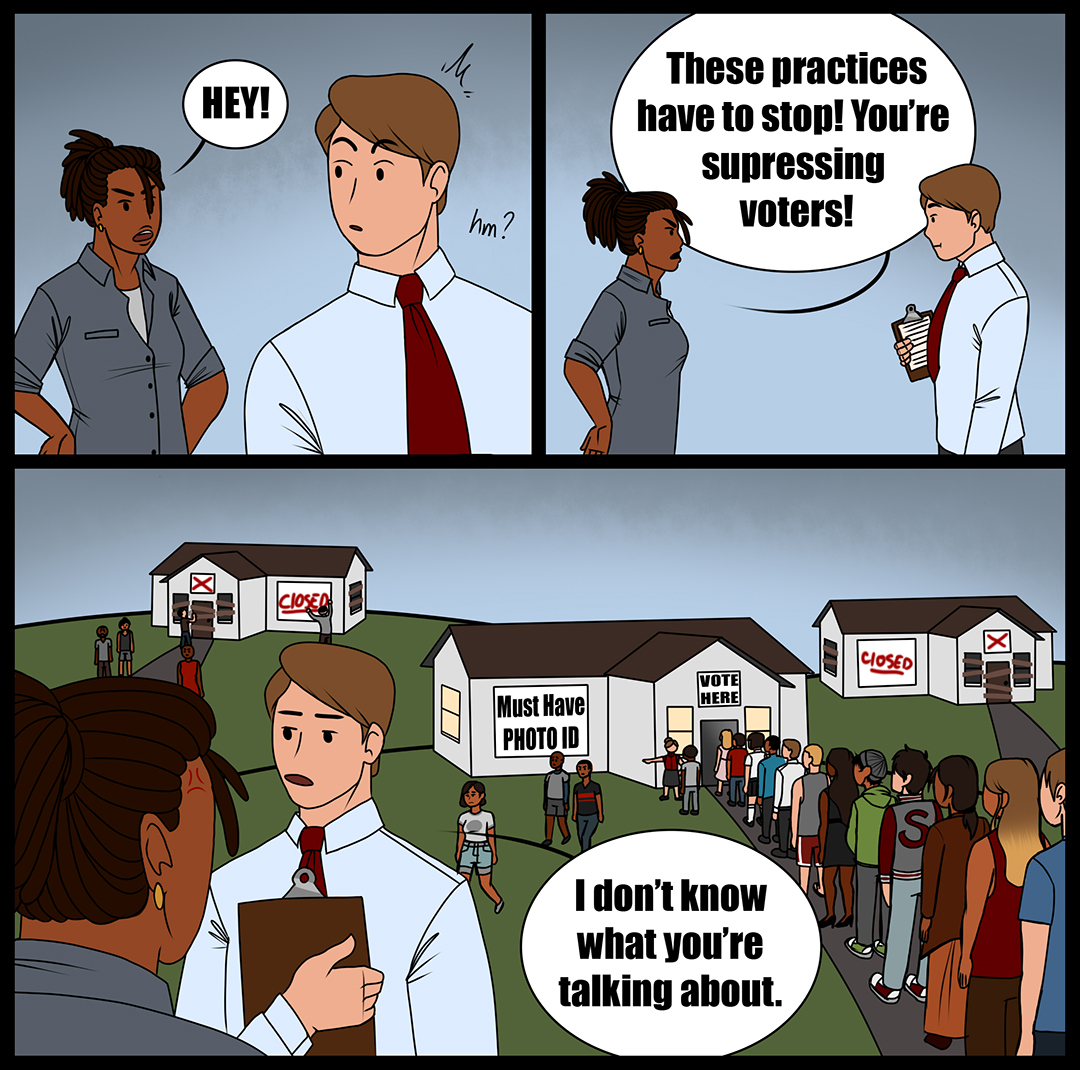President Donald Trump is right. Our electoral process is under assault.
But the issue isn’t voter fraud.
The real issue threatening America’s democratic process is voter suppression, which, with the midterm elections and deadlines to register rapidly approaching, it’s time to discuss.
Voter suppression isn’t new. Black people have been targets of it since the end of the Civil War. Though the means are more sophisticated and presented in significantly less racist rhetoric, they are no less effective.
Voter ID laws, voter roll purges and the closing of polling stations that create insanely long wait lines are the modern-day replacements for poll taxes, literacy tests and jellybean counts. But with the racism cloaked in bureaucracy, many have failed to notice. In fact, when African-American voter turnout dropped 7 percent in the 2016 election, voter suppression was overlooked as a root cause for that decrease.
In recent years, voter suppression has increased due to the Supreme Court’s gutting of the Voting Rights Act after striking down a provision that required districts with a history of civil rights violations to submit proposed changes to voting laws for federal approval in 2013. Following the decision, many states immediately sought to abuse this new freedom by implementing measures designed to stifle voters of color, poor voters and young voters.
In Texas, the Legislature enacted a law requiring citizens to have one of six government-issued photo IDs to vote. At first glance, requiring an ID doesn’t seem like much of an issue. And Texas Attorney General Ken Paxton, who argued for the law in various courts, said voting is one of the most important democratic processes and should be no different from getting a passport or library card, which require IDs.
But what Paxton overlooked is that voting is different because it isn’t one of the most important democratic processes. It is the most important. And it is protected by the Constitution as a fundamental right, unlike checking out a library book or getting a passport.
More than 600,000 Texas voters lack the identification needed to vote under that law. Eligible Hispanic voters are 242 percent more likely than non-Hispanic white voters to lack the identification needed for voting, and eligible black voters are 179 percent more likely. These statistics are proof that voter ID laws pose a constitutional threat because legislation regarding voting is unconstitutional if it discriminates against certain groups, via the Voting Rights Act.
The nation saw another form of voter suppression throughout the 2016 primaries and general election, when a number of people were in line ahead of the deadline to vote but left before casting a ballot when their polling station closed. They didn’t know that as long as they’re in line before the deadline, their polling station has to let them vote. This is directly related to another form of voter suppression that is still happening ahead of this year’s midterms.
Last month in Georgia, an election consultant proposed closing seven of nine polling locations. This limits where people can go and makes lines longer, which is why so many polling places had such long lines throughout the last election.
As citizens, it’s time to stand up for the right to vote.
The midterms will likely be decided by voter turnout. So register to vote by Oct. 9. Double-check that you’re still registered. Get the IDs needed to vote and then get to the polls during early voting Oct. 22-Nov. 2 or on Election Day Nov. 6.

